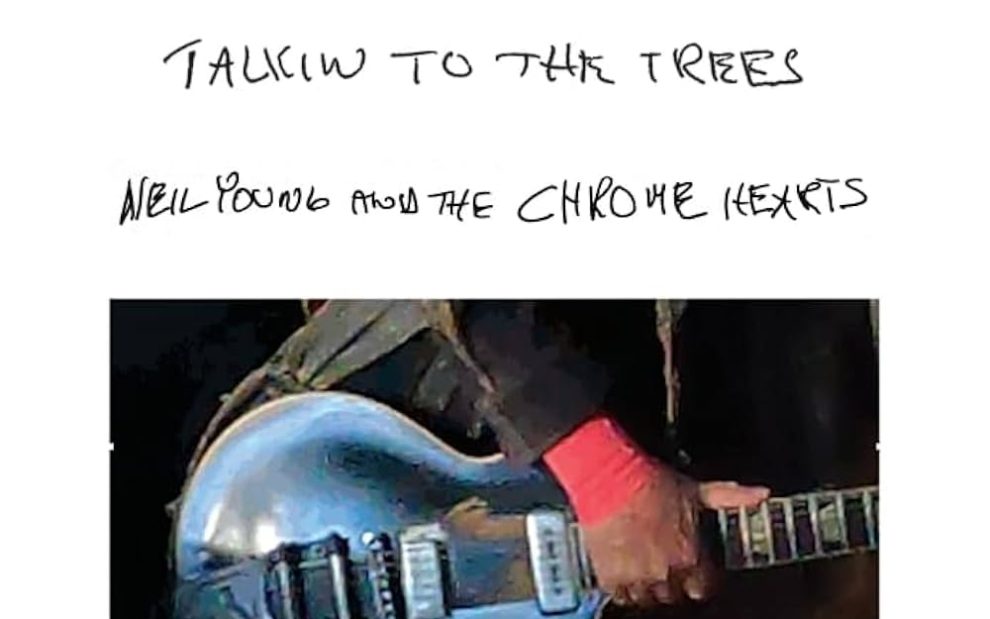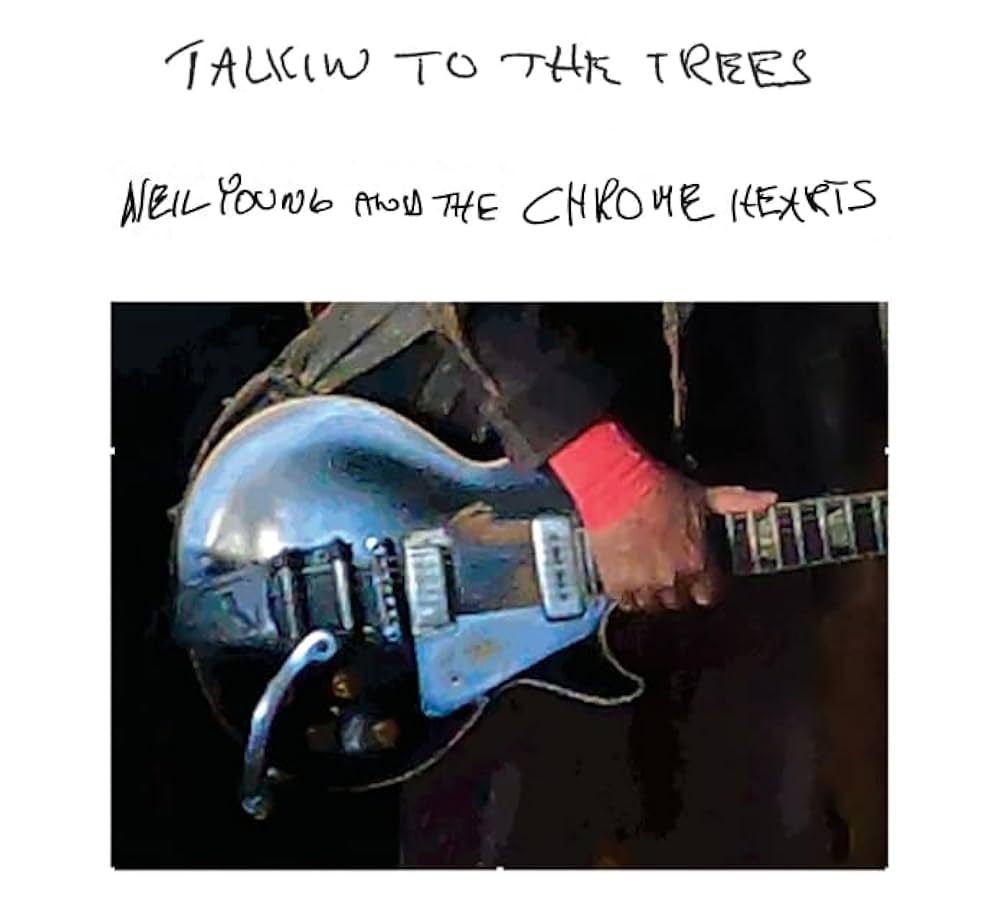Talkin to the Trees
Neil Young and The Chrome Hearts (Reprise, 2025)
A friend of mine used to say, “The older I get the more like myself I get.” And that’s certainly true for Neil Young, age 79.
Historically, Young’s musical output has been divided between grungy hard rock albums with the backing band Crazy Horse (see Ragged Glory, 1990) and folkie-countryish albums (such as his best-selling Harvest, 1972). For his new album, he’s produced a record that draws from both his musical tendencies. This is highlighted by two songs sequenced back-to-back, both of which repurpose the melody from Woody Guthrie’s “This Land is Your Land.” The first, “Silver Eagle,” is a Guthrie-esque hymn both to Young’s tour bus and to the country he’s traversed in it. The second, “Let’s Roll Again,” is a hard rock thrasher imploring the United States to catch up with China in the electric vehicle market, including the line, “If you’re a fascist, you can buy a Tesla.”
That kind of commentary on current politics has also been part of Young’s work from the beginning. On May 4, 1970, four student anti-war demonstrators were killed at Kent State University, and Young’s battle cry, “Ohio,” was in the stores and on the radio the same month. In 2006, as Iraq became the new Vietnam, Young did an entire protest album, Living with War. On this album, there is the hard rocking, “Big Change,” with its refrain, “Big change is coming…could be bad and could be good.” Since the album release, however, Young has dropped a song on the internet, “Big Crime,” that is an “Ohio”-style call to arms, decrying “big crime in DC at the White House” and urging listeners to “blackout the system.”
Meanwhile, on the folkie side, the record opens with two songs, “Family Life” and “Dark Mirage,” which get touchingly and painfully specific about the singer’s personal life, especially his estrangement from his daughter and her children. However, that is balanced by the album’s closer, “Thankful,” which offers a melodically arresting expression of gratitude.
This article also appears in the October 2025 issue of U.S. Catholic (Vol. 90, No. 10, page 38). Click here to subscribe to the magazine.
















Add comment